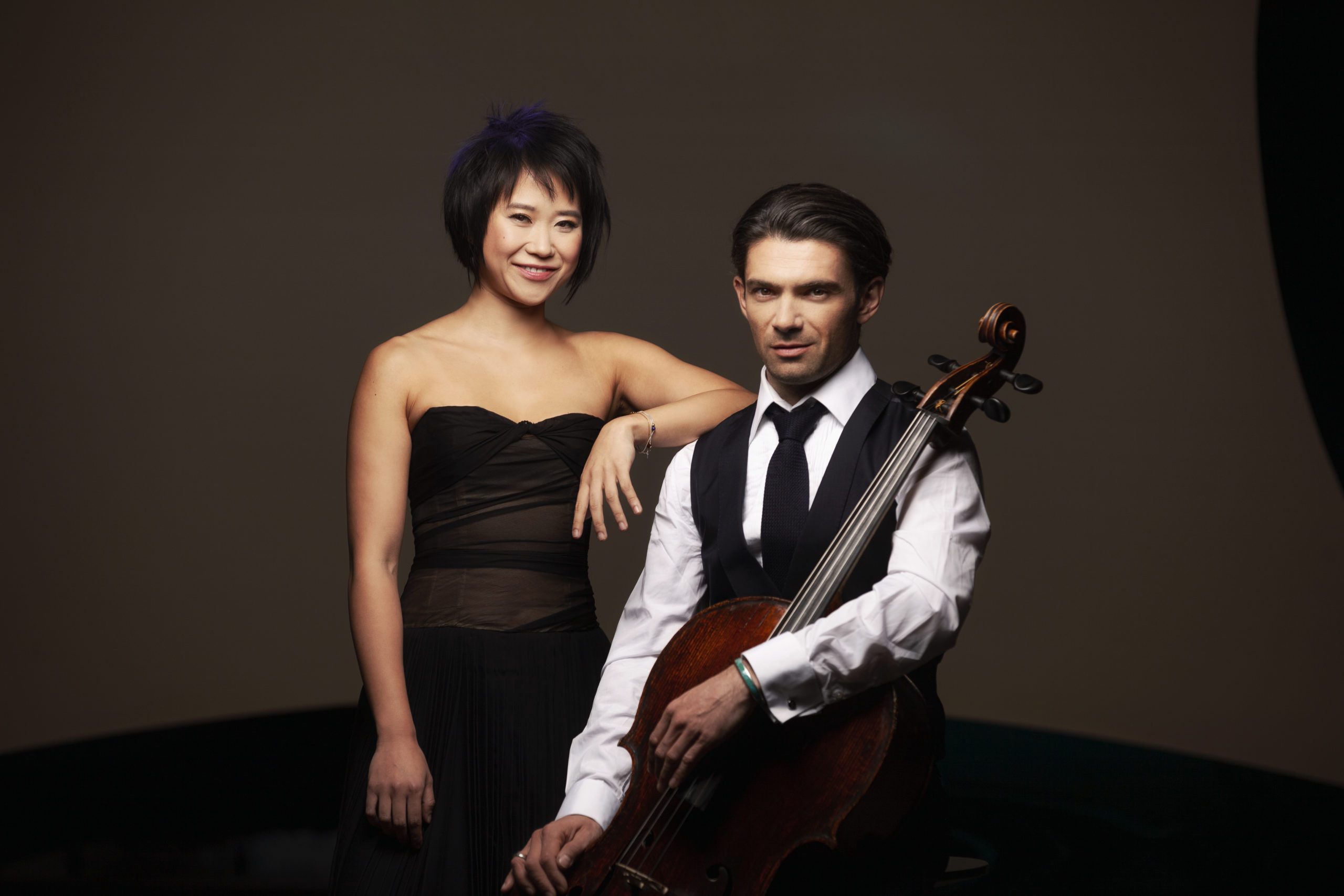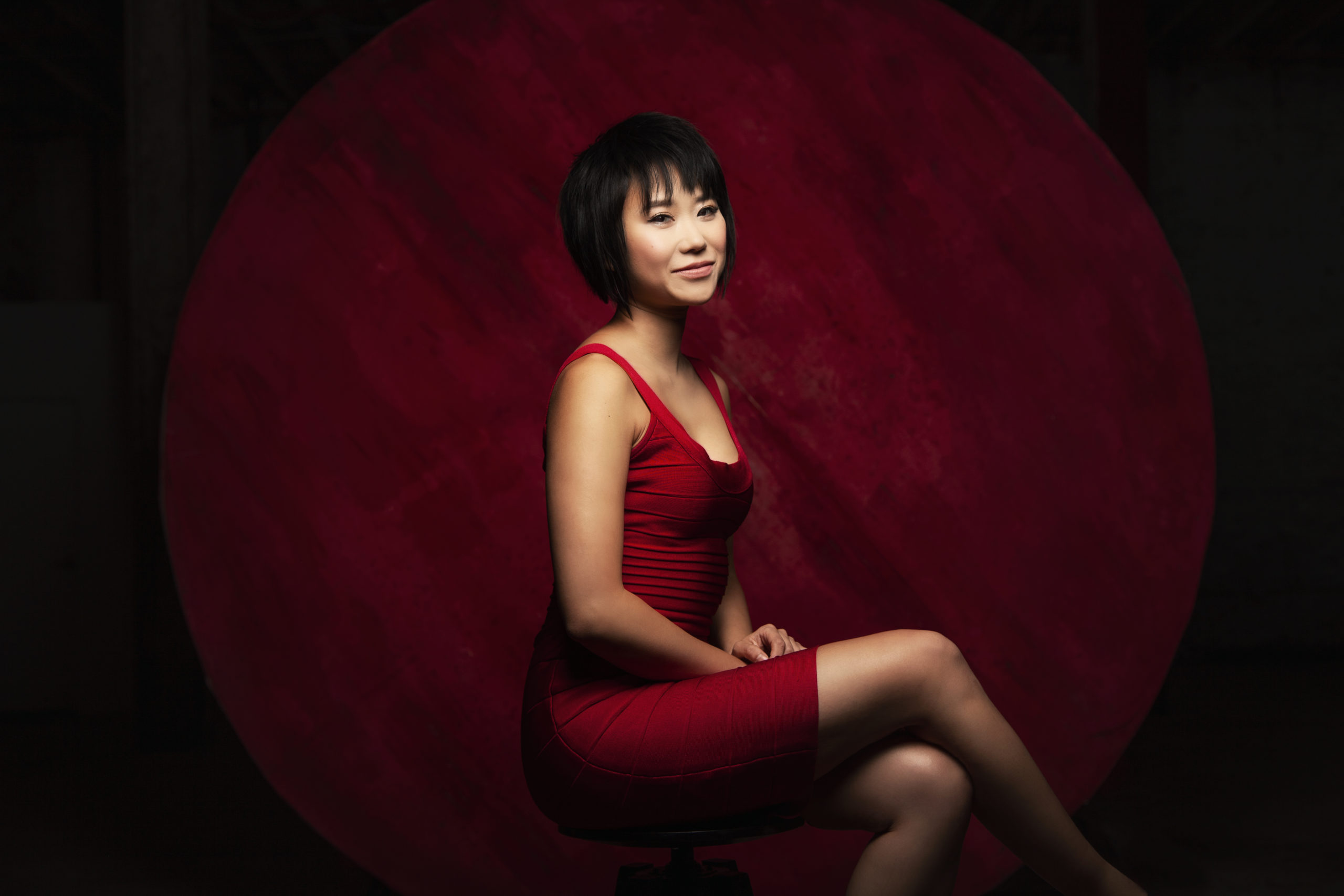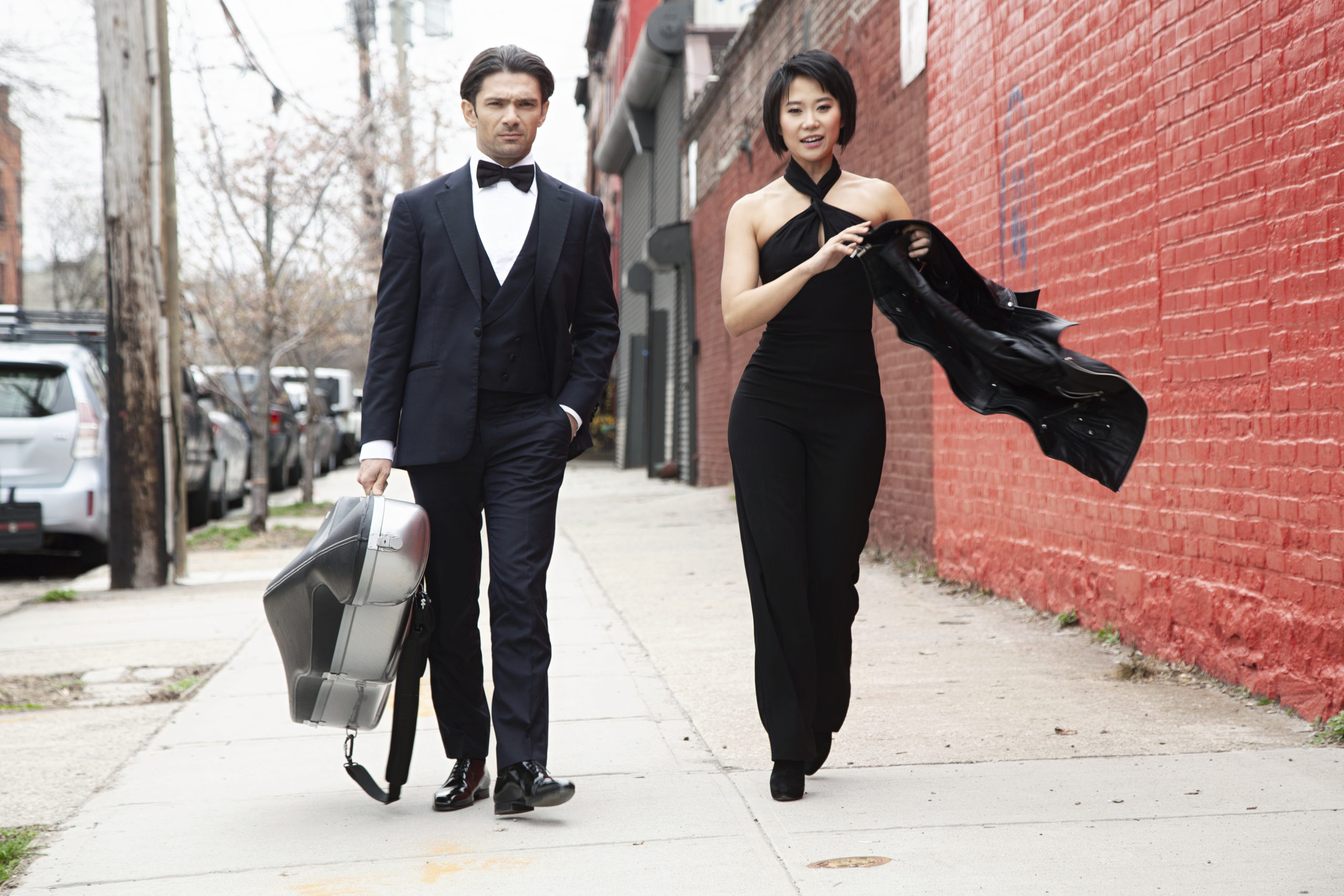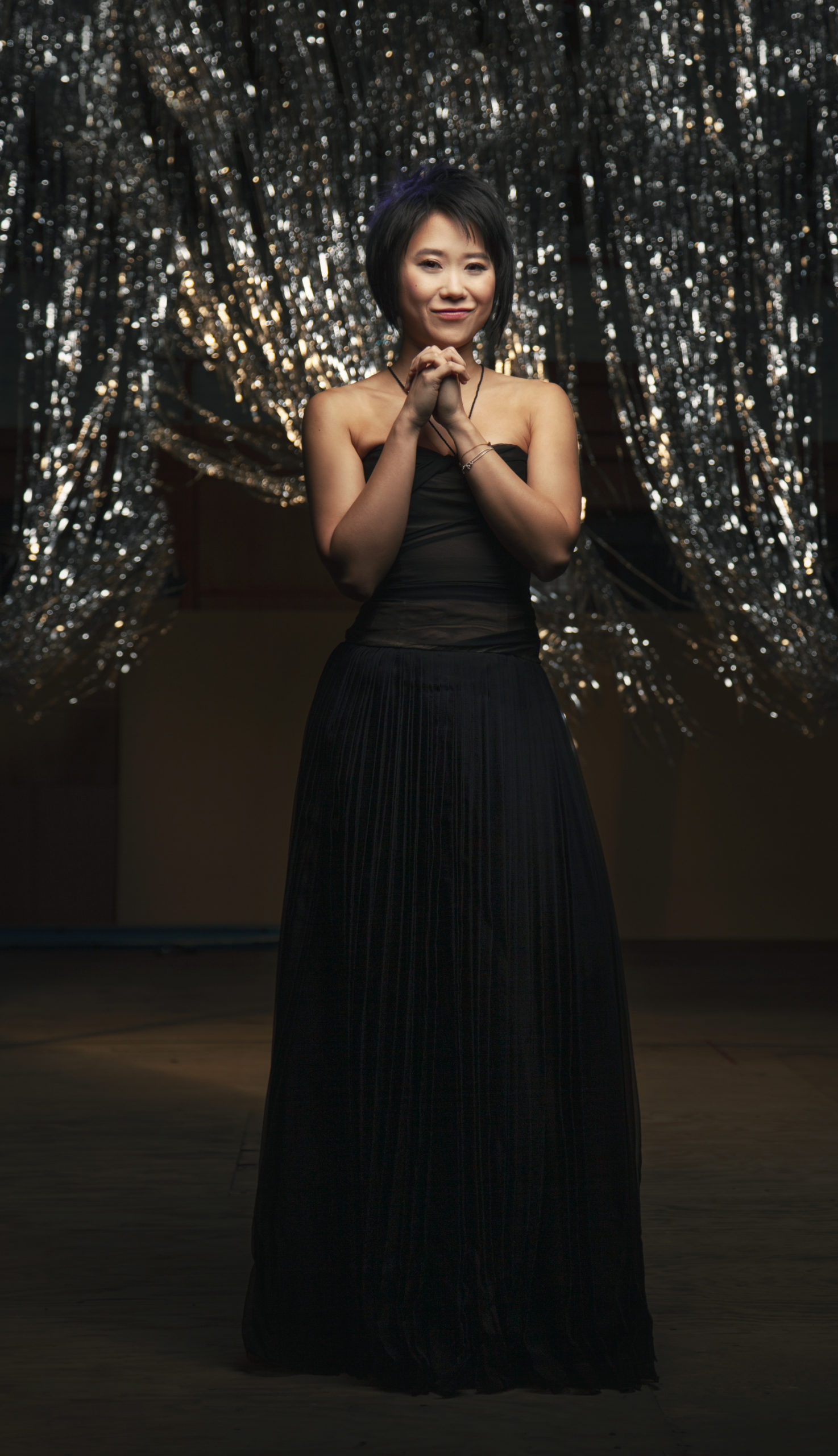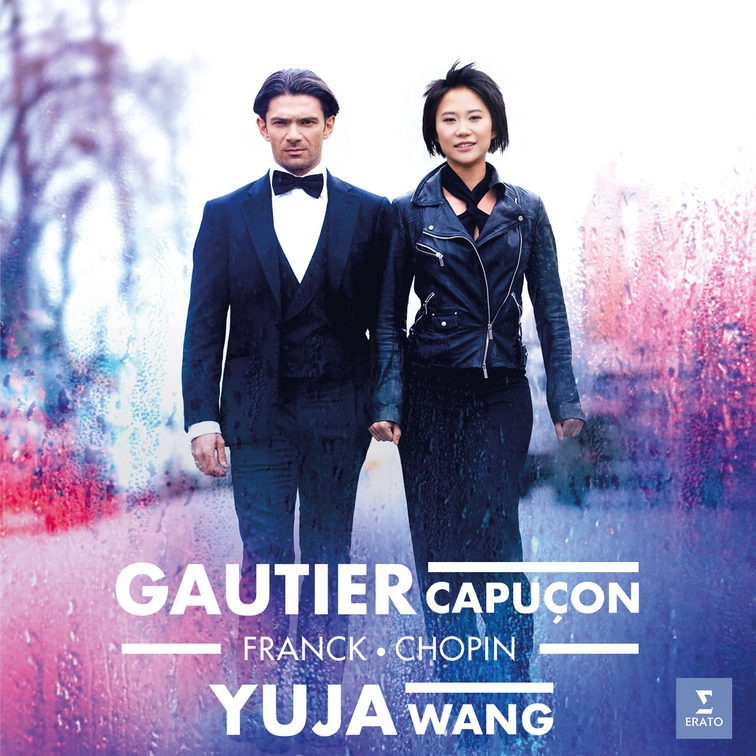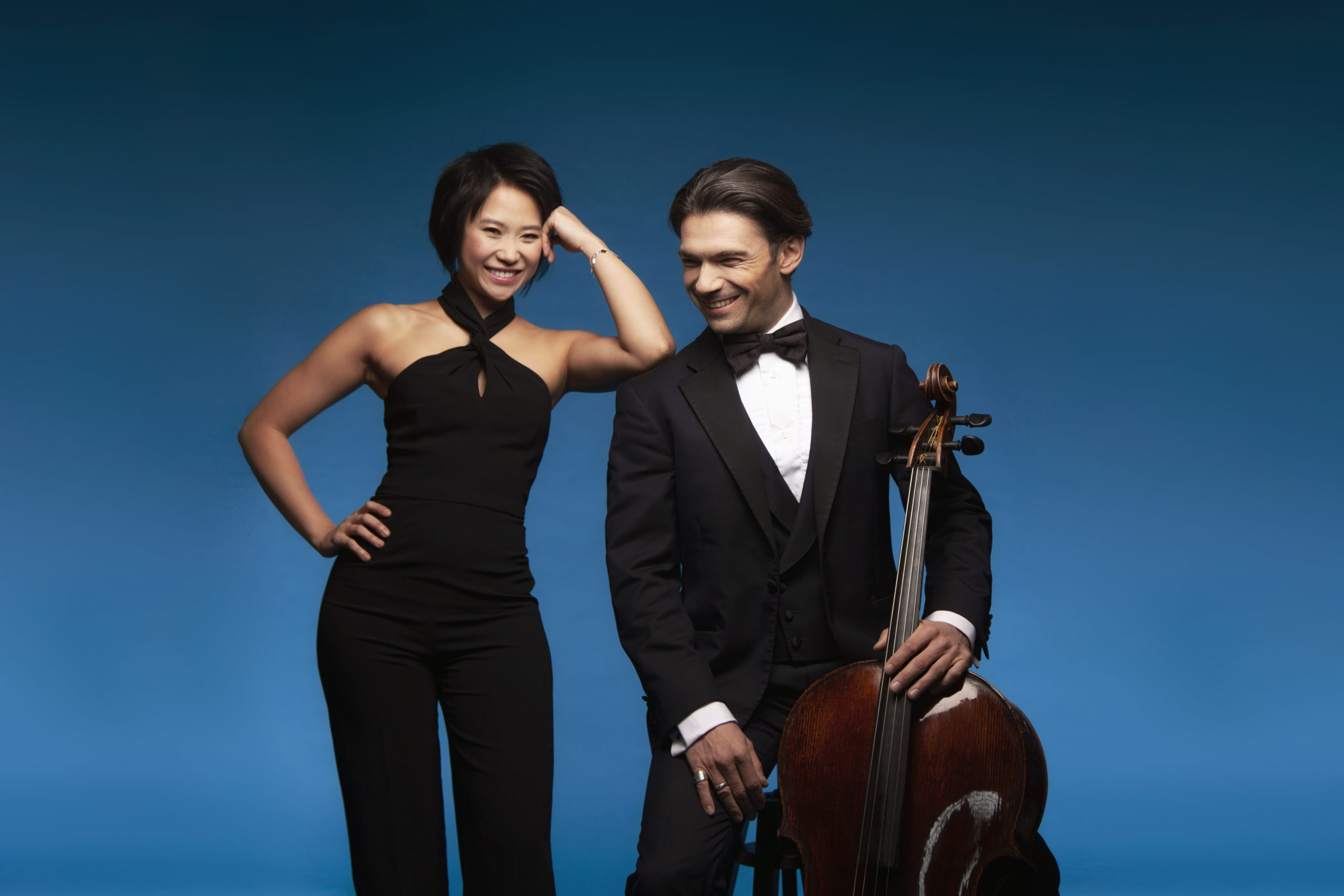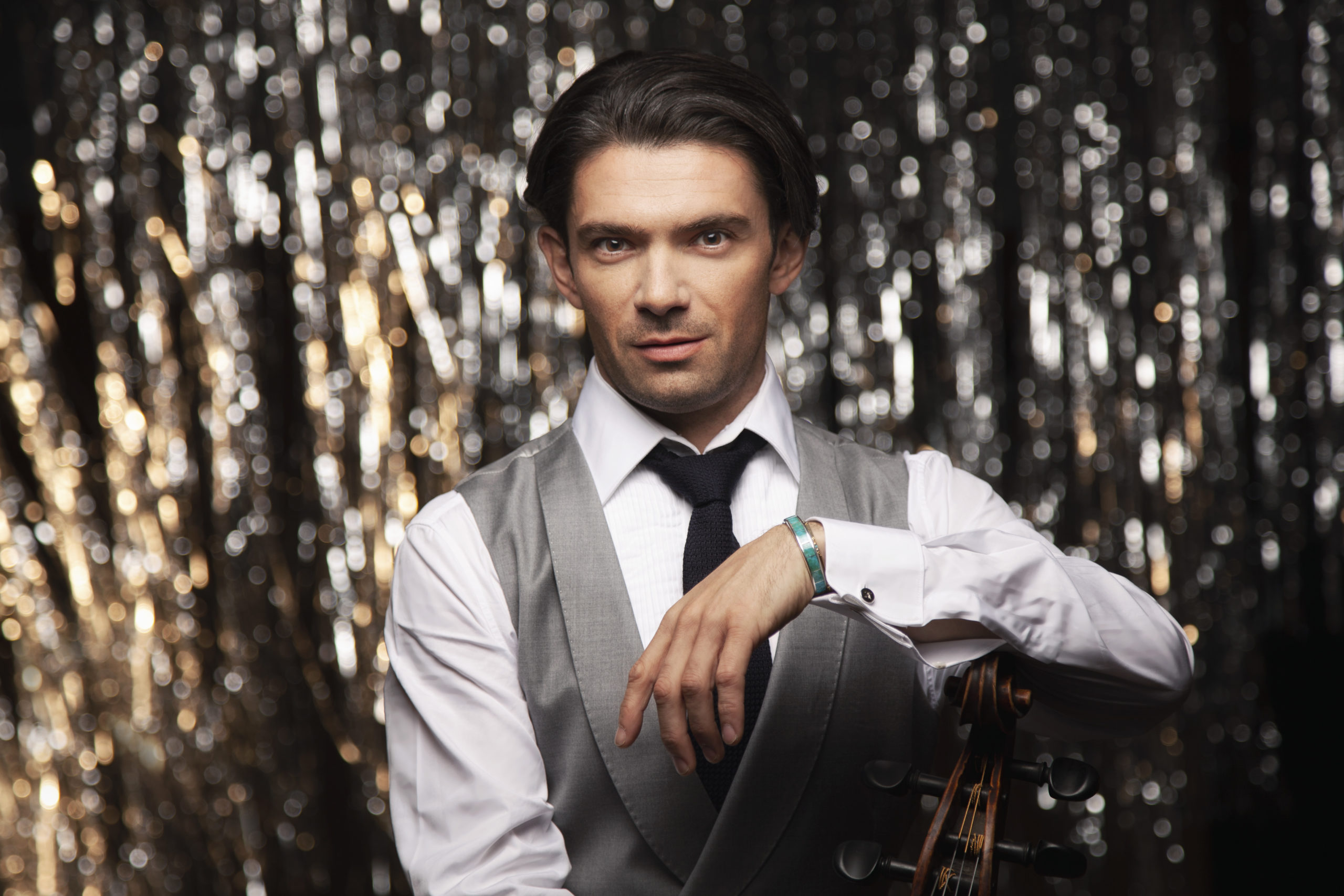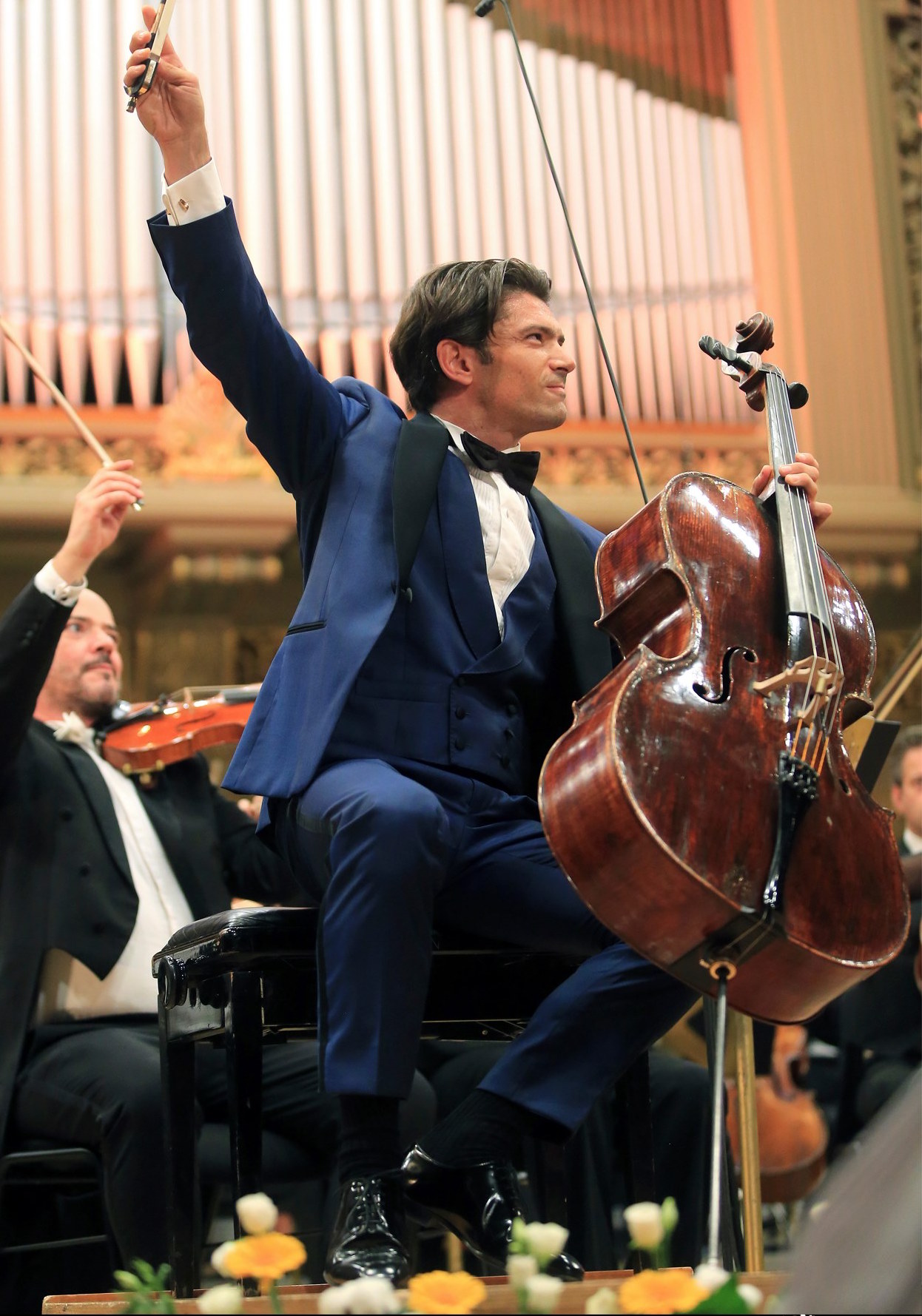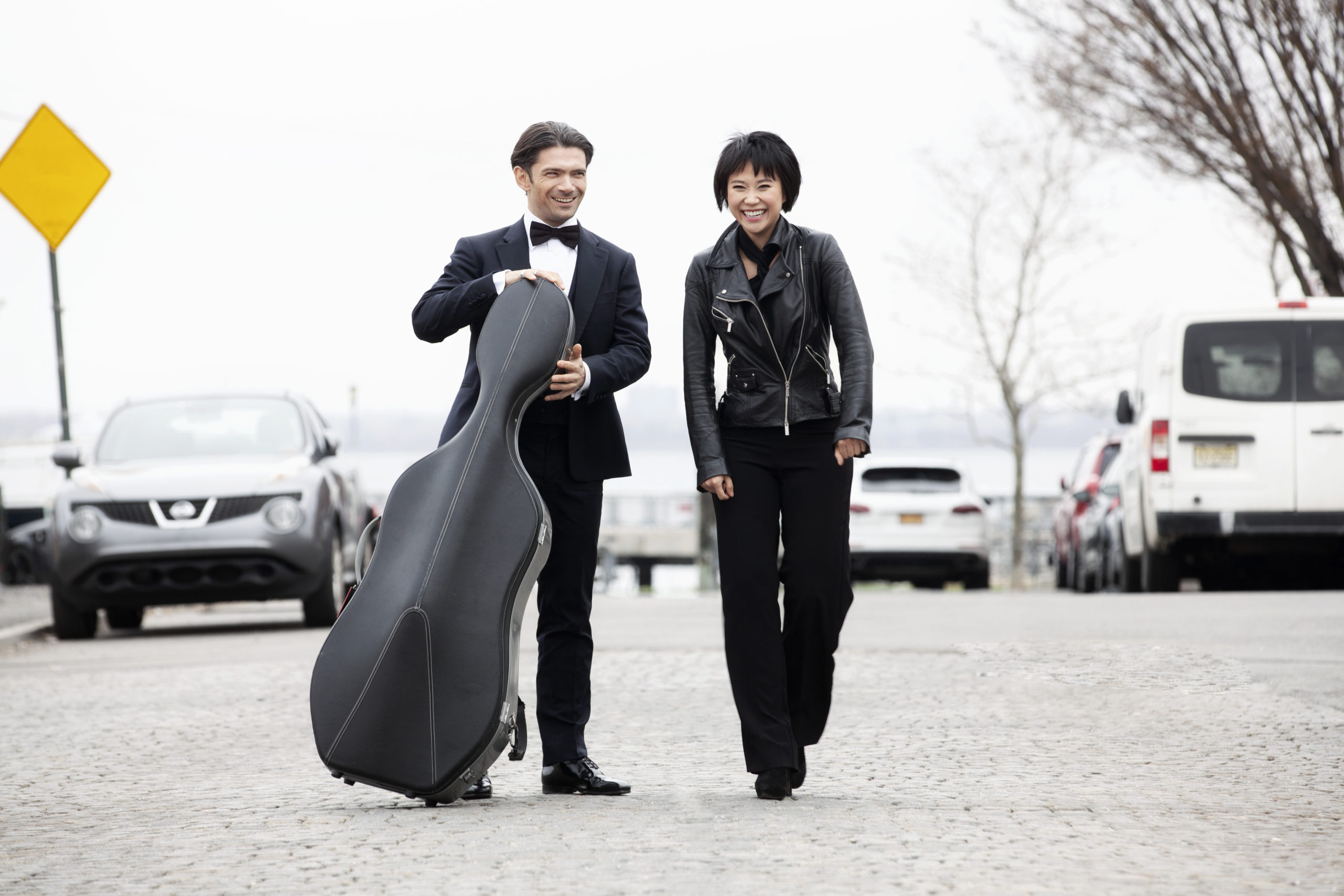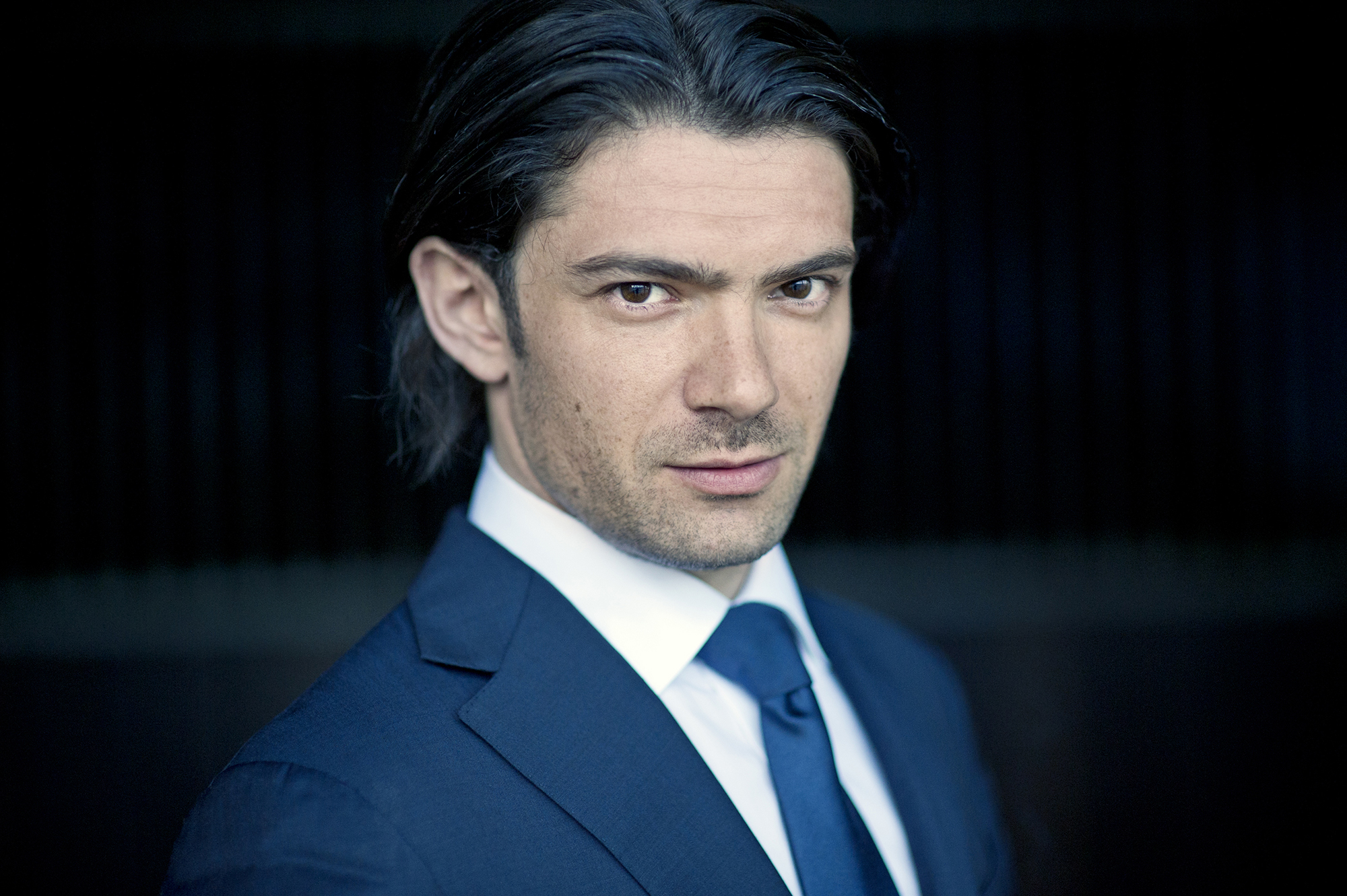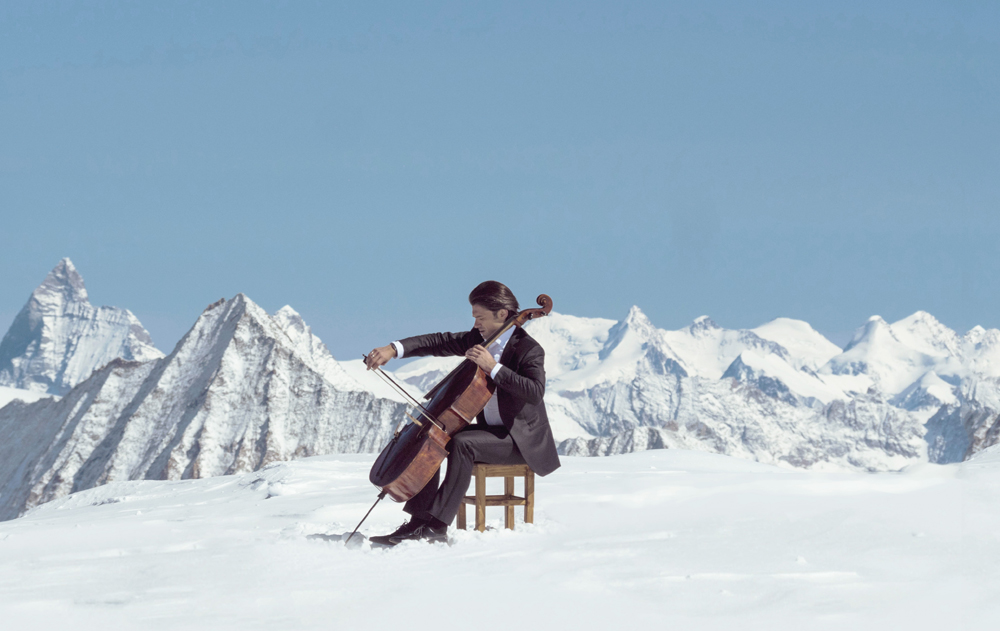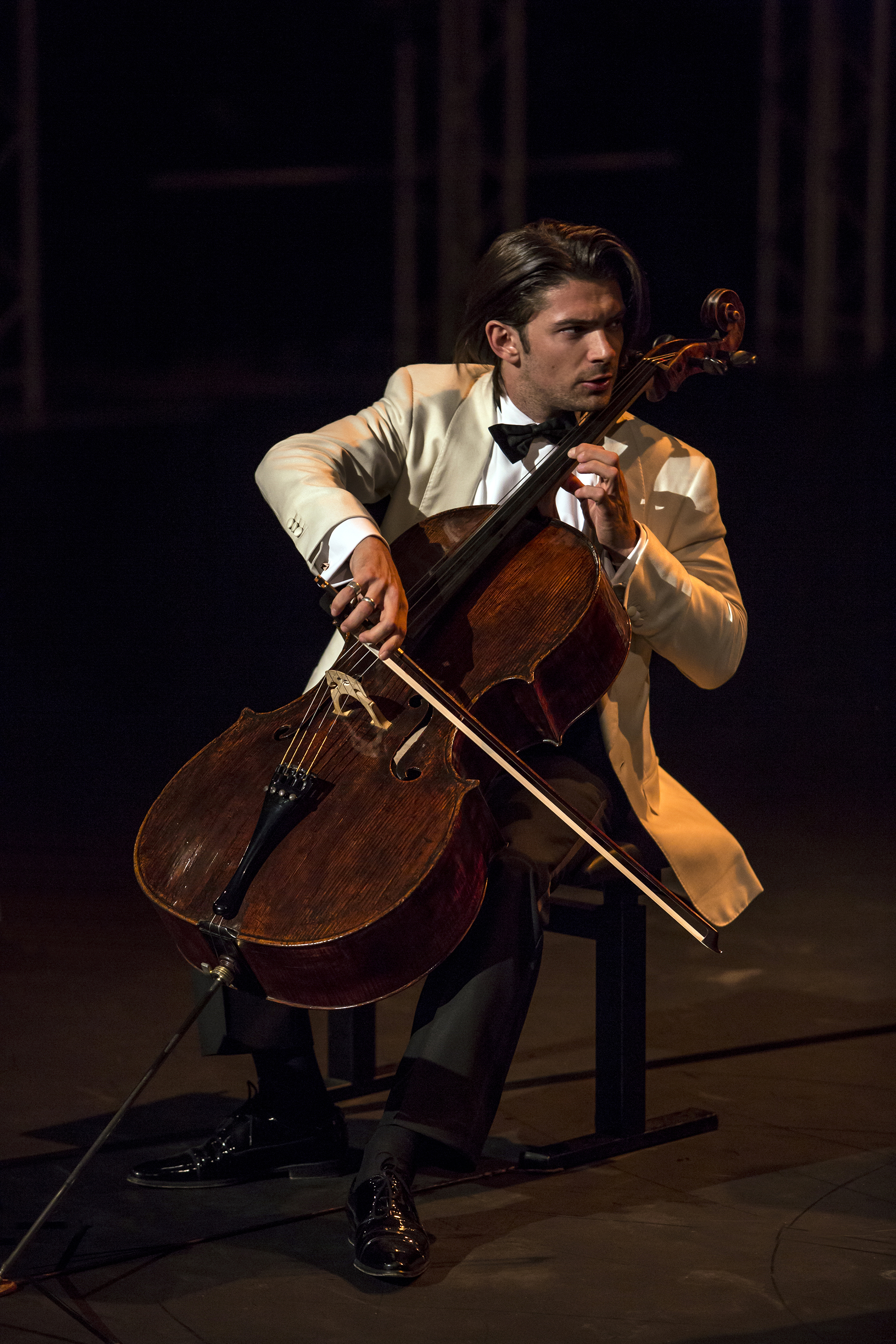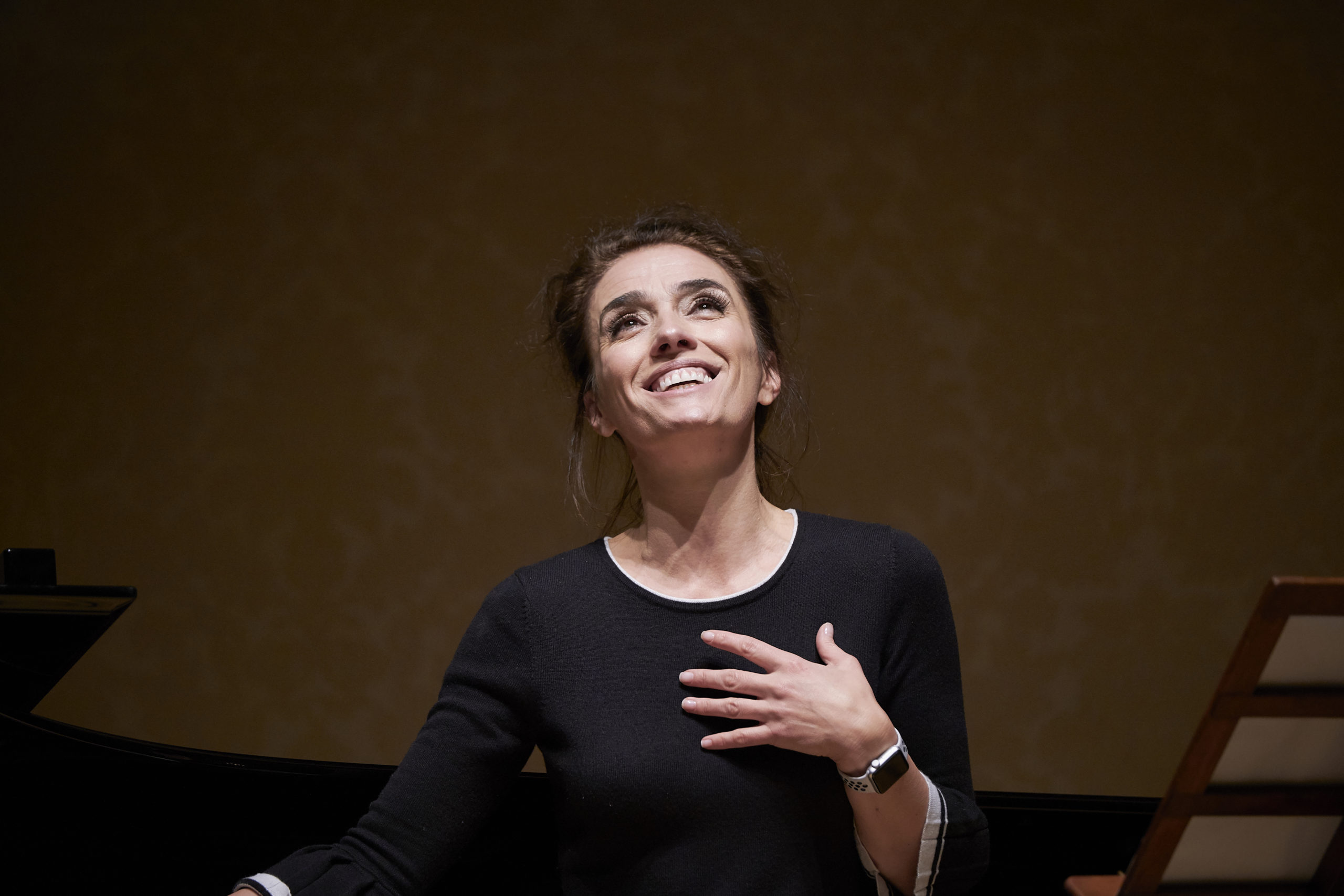
Ermonela Jaho live at Wigmore Hall February 2, 2020. Photo: Russell Duncan
One of my last experiences of live vocal music in 2020 was hearing Ermonela Jaho perform live at Wigmore Hall as part of Opera Rara’s 50th anniversary celebrations. The acclaimed soprano made her recital debut, together with pianist Steven Maughan, to a packed hall, tackling an ambitious program of works consisting of French and Italian repertoire in memory of soprano Rosina Storchio (1872-1945), who originated many of the roles in the works being presented. As The Guardian‘s Tim Ashley wisely noted, Jaho’s artistry “is rooted in a deep identification with her chosen repertoire that results in performances of unsparing veracity and tremendous emotional honesty. In recital, as on stage, her ability to expose a character’s psyche in seconds is utterly remarkable.” I came away feeling not weakened but awakened, as much entranced by Jaho’s lilting phrasing in “Sérénade” (Gounod) as stunned by her plaintive “Tristezza” (Tosti), the honesty of her emotion clear in light shades, dark tones, and everything in between.
The evening offered a tantalizing preview of Anima Rara, Jaho’s third album with Opera Rara, set for release on 25 September via Warner Classics, and recorded with Orquestra de la Comunitat Valenciana and conductor Andrea Battistoni. The album, like the recital, is a tribute of sorts to Storchio, but is also a deeply moving showcase of the innate lyricism and emotional honesty which are so much a part of Jaho’s artistry. Known and rightly celebrated for her visceral stage performances, Jaho, who began her operatic career as a teenager in her native Albania, has appeared at a number of famous houses (The Met, Bayerische Staatsoper, Staatsoper Unter den Linden, Berlin, Teatro Real, Opéra national de Paris, Deutsche Oper Berlin, the Royal Opera) in a range of dramatic and demanding roles, including the titular Anna Bolena, Suor Angelica, and Thaïs, as well as Mimi in La bohème, Violetta in La traviata, Liú in Turandot, Desdemona in Otello, and, perhaps most famously, Cio-Cio-San in Madama Butterfly, a role she is set to reprise next month at Greek National Opera. Amidst the fourteen tracks featured on Anima Rara, Jaho seamlessly connects head and heart through a kaleidoscope of vocal colors via verismo, the late 19th/early 20th-century style of opera which uses real-life settings and characters as a means by which of attaining a greater degree of naturalism, and, I would argue, psychological familiarity.
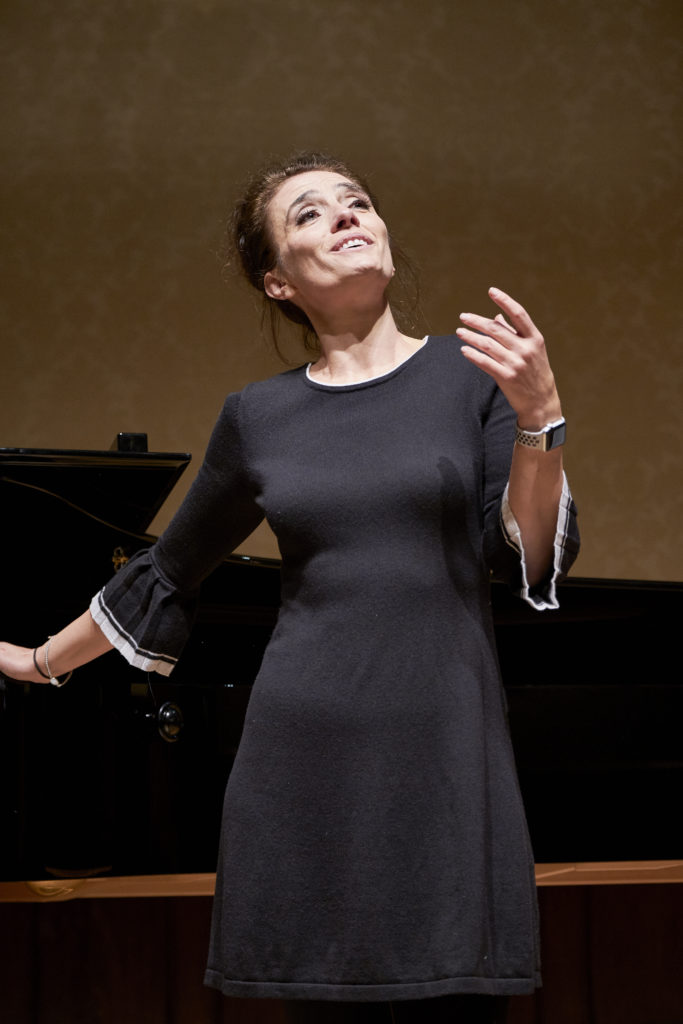
Ermonela Jaho live at Wigmore Hall February 2, 2020. Photo: Russell Duncan
Confession: I was not the biggest fan of verismo until I heard Jaho live and subsequently on this album. Her attention to detail is so connected to emotional expression as to be indistinguishable; the transitions between notes, the considered pauses, the smart phrasings – they all allow a vivid series of pictures to be created in one’s mind. I felt I was actually seeing and starting to know, at a human level, many of the women Jaho here embodies in sound. Some of the narratives verismo favours are indeed soapy (revolving around sex, jealousy, and rather teenaged ideas about, and reactions to, the experience of love and its confusion with infatuation), but the emotions behind them are, thanks to Jaho’s endearing approach, made wholly authentic, and communicated with a graceful, smart blend of technical knowingness and soulful embrace. As Ashley wisely noted, the veracity is unsparing, which makes for not only a gripping listening experience, but one capable of changing one’s perceptions entirely. Bravo indeed.
Conductor Carlo Rizzi is the Artistic Director of Opera Rara, and has worked with Jaho on various occasions, including in 2018 in a production of Les contes d’Hoffmann at De Nationale Opera, Amsterdam, and in 2010 at La Monnaie on La bohème, in a production directed by Andreas Homoki. Maestro has a wide breadth of knowledge and experience leading various Italian works (Puccini, Verdi, Bellini, Donizetti, Giordano, Cimarosa, Pizzetti, Montemezzi) at a wide variety of houses, including The Met, the COC, Rossini Opera Festival, Pesaro, Teatro dell’Opera di Roma, Deutsche Oper, Den Norske Opera, Oslo, his homebase of Welsh National Opera (where he is Conductor Laureate), and most recently, Fondazione del Teatro del Maggio Musicale Fiorentino in Florence. There exists a deep appreciation for both the vocality and the unique brand of theatricality the music featured on Anima Rara demands, a blend of the familiar (Verdi’s La traviata; Massenet’s Manon; Boito’s Mefistofele; Catalani’s La Wally; Puccini’s La bohème and Madama Butterfly) and unfamiliar (Giordano’s Siberia; Massenet’s Sapho, Leoncavallo’s version of La bohème, a trinity of Mascagni works including Lodoletta, L’amico Fritz, and Iris, in which Jaho was to have made her role debut at Teatro Real de Madrid in May, prior to the COVID cancellations). The conductor is effusive in his praise of Jaho and her inherently dramatic approach, but he is also simply marvelous in explaining the reasoning behind that approach – its technical demands, its musicality, the need for watchfulness in its application within the context of verismo. Following this are the soprano’s own thoughts on the album and its tie with that famous emotional honesty, the nerves that went along with her recital debut back in February, and why thinking of every stage appearance as her first and last is such a central part of her creative approach.
Carlo Rizzi: “Music Becomes A Part Of Her Life When She’s Singing”
Ermonela’s vocal acting, live and on Anima Rara, is so effective that she made me reconsider my ideas about verismo.
Actually I think you’re absolutely on with saying “vocal acting” – it’s fantastic, this expression, because that’s exactly what she does. With the bel canto and more classical things like Mozart, of course you do things with the voice but there is something in the sound and the way you have to deliver the words in verismo that is very particular, and this, in a way, makes it or breaks it for many people, because it’s not a way we are used to expressing ourselves anymore. The verismo, the language of the verismo and in particular the Italian language, is very full on; it’s like if you have a lot of water in a rather small pipe, it’s a little bit of pressure, and some people like it and some don’t like it, but it’s definitely necessary to have. Ermonela knows not only how to use the voice but how to lead the part, and that is really necessary – you cannot do verismo otherwise, it becomes empty. When I met her she was doing lighter roles, but she has really, I think, passed through these sort of, I don’t want to say “bigger” roles, but this more mature phase of her voice, seriously, yet she has not lost the freshness which is important to keep, even if you sing with a fuller voice.
Your water-pipe/language metaphor is apt; it’s like she gives just enough to keep your thirsty but not enough to soak you through.
Well Ermonela is a very good actress – it’s that simple. When I met her and we worked together, I really got very much enamored with her way of performing the music. Now there are many singers that fall into music because they don’t have the capacity to act, but she does – it’s not fake with her. I remember we did in Brussels, some years ago now, La bohème and at the end of this performance, we were both in tears and embracing each other, because the emotion she was putting in the voice, not just tearing hair out but in the voice, was feeding me and I was giving that (energy) back to orchestra. When this happens with a singer it’s fantastic, it’s not just one doing what the other wants, but is really what vocal music should be: it should be the orchestra entering into the voice, and vice-versa. With her it’s very easy because this is what she believes in, it’s never singing just to be singing – it’s singing matched to the expression.
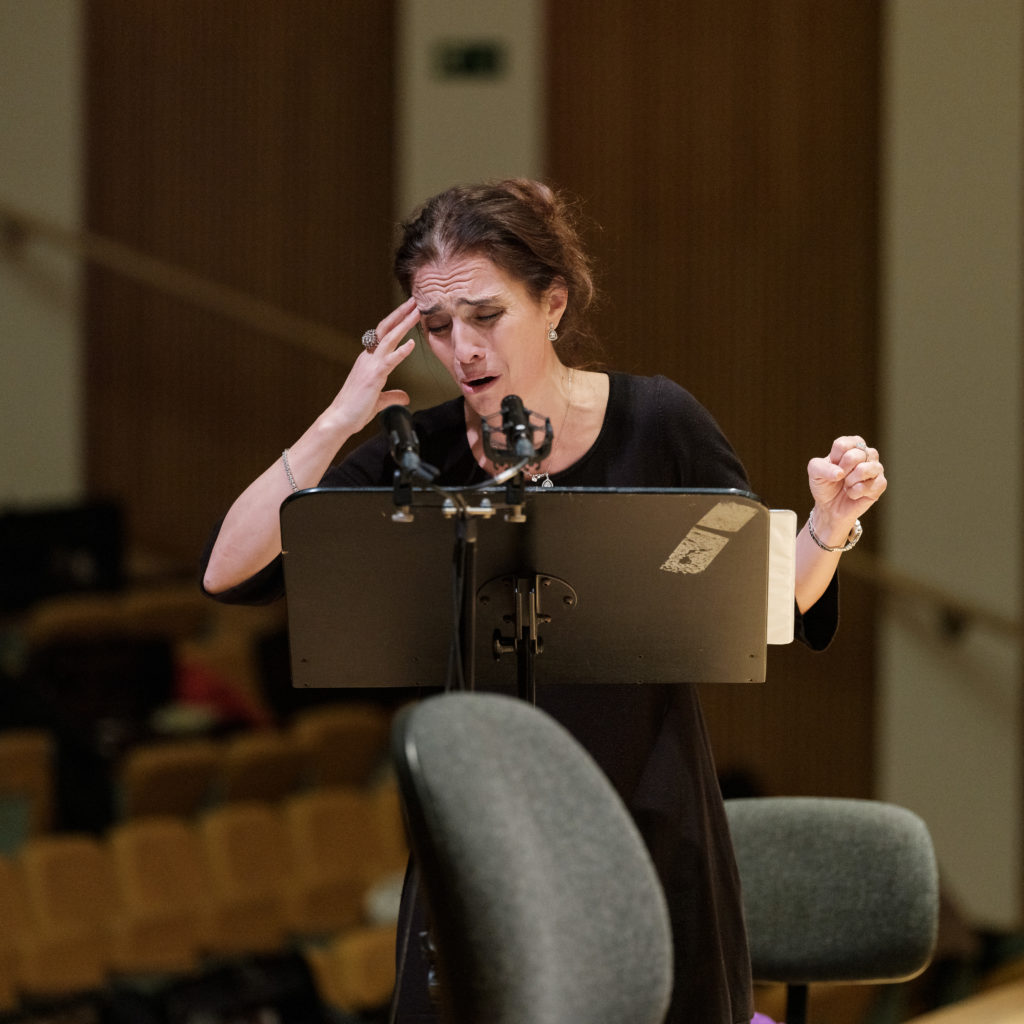
Recording Anima Rara in Valencia in 2019. Photo: Simon Weir
That attention to text – open vowels, repetitive sounds, their placement – that level of detail…
… this is actually what singing should be! Singing is talking at a higher level; when you talk, people talk lalala, fast, but if you really want to communicate, you need to linger on certain notes, give a shade to this or that, that is the point, the shape of the phrase and shape of the language. This happens in talking and also when one sings. For example when I work with young singers, immediately I understand how some can pronounce very well but they don’t have a clue how the thing goes, or one does a little slip as a musician but they know which place in the phrase the word occupies and this comes through even if you don’t know the language – that’s the point: if there’s a shape or a journey in the phrase, it goes to the listener, even if the people don’t know the language. Ermonela is very good at this; the music becomes, not corny, but part of her life when she’s singing, and I think she’s very honest about it, it’s not just a gesture.
That honesty complements her work with Opera Rara. There has to be an approach to presenting and performing these works as more than mere novelties or curiosities; there has to be as much intelligence for things like Lodoletta as for Traviata…
Yes, that is the understanding of the style, because if you don’t understand the style… an allegro isn’t just an allegro; there are allegri that are sometimes slower and largi that are sometimes faster, it’s how the style goes. Sometimes the approach is only technical, like “This is what is written” rather than, ‘Let’s get into the music: what is the message and the flavour here?”, where you are looking at and understanding the vocal development of the vocal line; if you look at that, 90% of the work is done, it’s clear, this is the way the composer was writing. Of course I’m not saying every composer is the same, but when you have composers who worked in the same field and era, chances are the approach to the written note was more or less the same, and this is what is important in terms of performing the underpinning style – Ermonela understands this sort of context entirely.
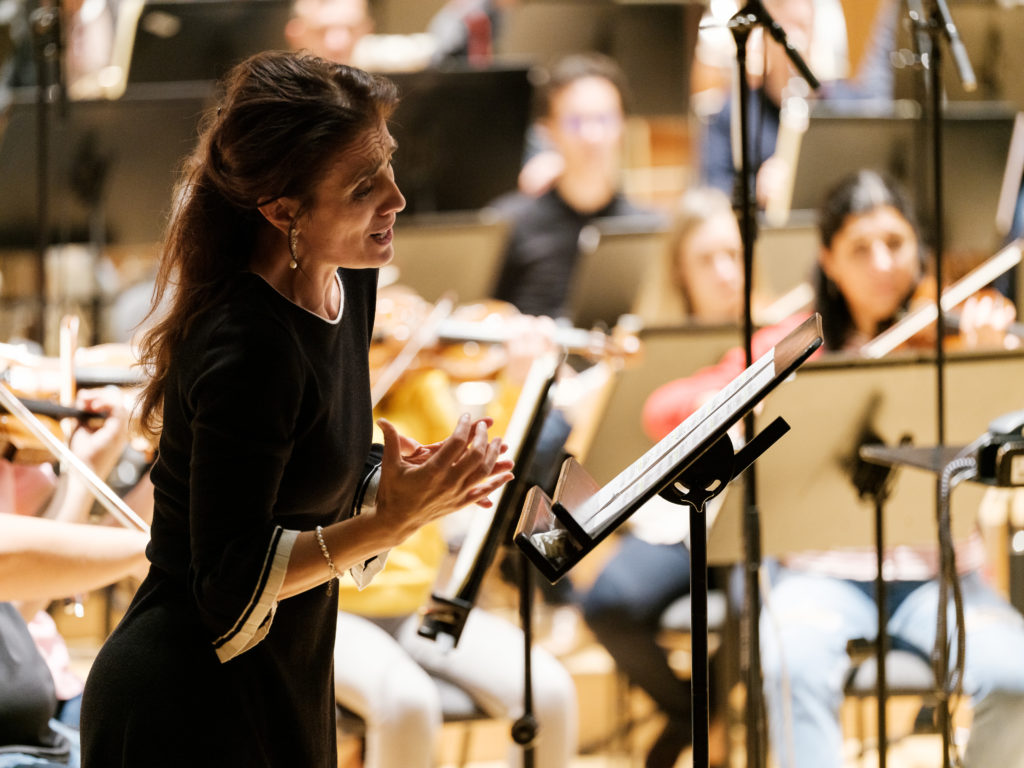
Recording Anima Rara in Valencia in 2019. Photo: Simon Weir
Ermonela Jaho: Speaking Through The Voice
Anima Rara is indeed transportive – listening to it, I was taken back to that night at Wigmore Hall but also very much into the worlds of these characters; they feel vivid hearing you do them.
That was my goal, because I feel some empathy, and, I can’t find the right word… the music transports me into that dimension, it feels like living in that world. Sometimes – it will sound crazy – but sometimes I think, if you believe in other lives, I’ve been a Suor Angelica, a Violetta, a Madame Butterfly, all the roles or arias I’ve sung, I can’t explain it but I enter that dimension and I believe in every single word I sing; it’s not only the singer, of course you need to have done the homework, to have the technique, the sound has to be there no matter what – but all of it is in service of what I’m singing, even with the imperfections. The vulnerability connects with people, and the imperfections too – we need to feel the fear, the joy, and I try to go to those places.
Something Pappano highlighted in your conversation this summer was the humanity in your approach, which is so noticeable hearing you live but it’s palpable on the album as well, this sense of lived humanity and visceral experience, and I’m wondering if you think that quality is reflected in the vocal writing of these verismo pieces.
Yes, absolutely, because it’s theatre. In bel canto you have long lines, these arias with cabaletta, which of course you need to put your soul and everything in, the drama is there as well, but this repertoire, verismo, it’s so direct, sometimes it’s like a dialogue, like a movie. When you need the pause to breathe, not just taking your time because you’re hitting a high note after the pause, it’s a pause of breathing the actual emotion – and sometimes the silence could be more dramatic than an explosion of certain notes. That’s theatre, but it’s tricky as well because you have to balance being believable against being ridiculous; sometimes you can go a little bit forward, like a drama queen, but you have to be believable. If you play just the pain or the joy, maybe you can make it work in two, three moments, but the whole piece is difficult to sell, if I can say that. I’m Mediterranean, and we are louder in everything – pain and joy – but there’s still a human element; sometimes we have the words and we don’t want to say them out loud, but our soul is screaming. And you can convey that in music with the breathing, or with other little details, although with this repertoire, it’s written so straight-forward.
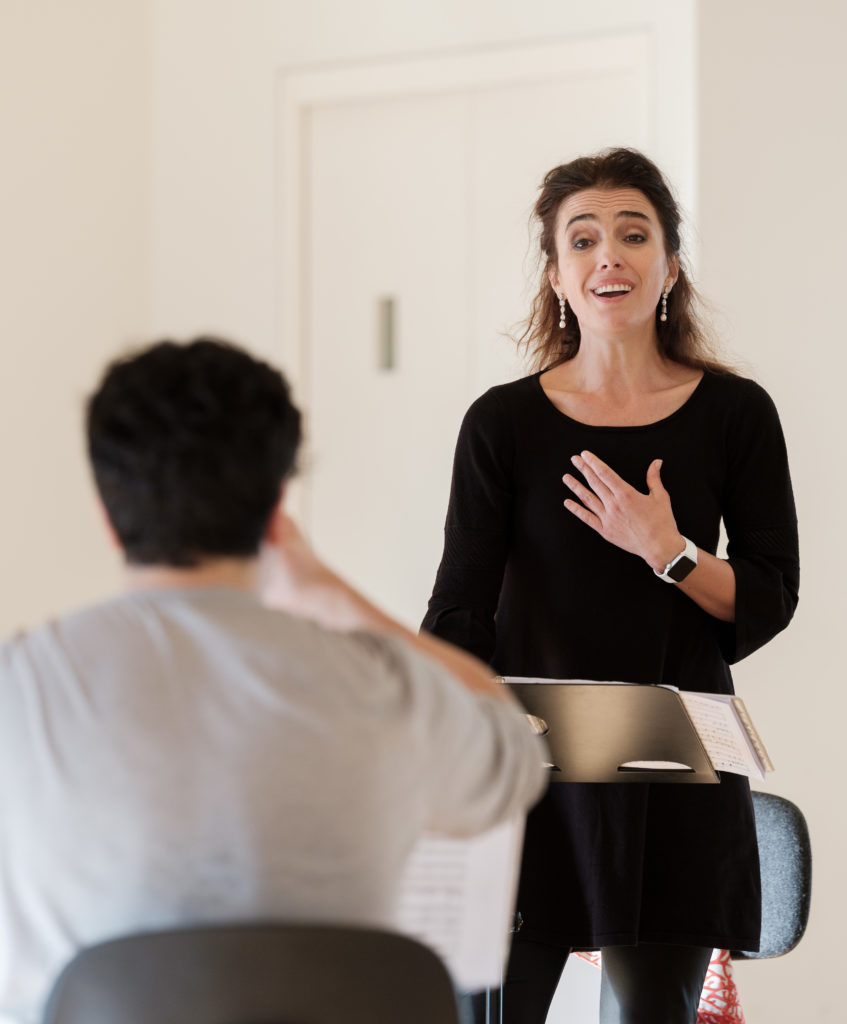
Rehearsing Anima Rara with conductor Andrea Battistoni in 2019. Photo: Simon Weir
Your pauses and taking those breaths feel very much a part of your vocal acting; the timing and phrasings convey such an innate comprehension of the line between gripping and overwrought, because as you said, one can tip into the other easily.
Yes, and of course you can improve because it’s the kind of repertoire in my perception that is like, more, not older, but the more life experience you have, the more meaningful this repertoire is. Even to stage it is so difficult because it has to be so meaningful and you have to be … to live that story, 100%. Singing is the language of our souls. We can’t fake it. It’s something that the public will feel immediately, if you fake it. And that’s why I think it’s so difficult and interesting to go toward this repertoire and feel it’s mine. I don’t know how I can put it, but I love it, and I’m trying to improve as much as I can technically, to give that kind of liberty to my voice and express the emotions – if you don’t have a good technique, it could be only a beautiful thought, “make this phrase like this and that phrase like so” – but if you don’t give it all with your voice, your breathing, with all your body and soul onstage… they remain only beautiful notes in a score, and you fail as a singer and as an artist.
You also said to Pappano, and you have done before as well, that you always approach each performance as if it is the first and last of your life; I’m wondering if that applies to recital work. I was genuinely amazed at your pacing.
I tried to pace, believe me! It was a challenge, that recital, because I’d never had a recital on my own, not because I didn’t believe in it – I love it so much and would love to repeat it – but because I’m so shy as well, to be honest with you, and I let it go when I’m onstage (in opera). Somehow I feel protected and with some distance from the public – I want to feel the energy but I don’t want to feel judged. The costumes, the staging, they keep me a little distanced, and always I thought to myself, “Never will I be able to have success in singing in recital, opera is better” – but sometimes we have to challenge ourselves. What I chose was crazy to be frank, it was so long and so diverse, and I thought, “It’ll be the first and the last recital, but okay, let’s try it!” And I loved it so much though, because I thought, in that recital, like going back to that Pappano conversation, it’s my first and last appearance on the stage.
It was a dream for me to become an opera singer; I fought so much to reach the position I’m in now and for me, I won my dream, if I can say that. I endured a lot of difficulties, so now every time I’m on stage I appreciate how lucky I am. It’s about 26 years professionally now that I’ve been singing, and I don’t know if it will all end tomorrow – I want to live life in full, which sounds a little… stupid, but you know, at the moment especially, I don’t think about tomorrow, because you never know. In this situation with the virus, it brought to mind how I have suffered because I’m not onstage. Every time I am I’ve kissed the stage, because I think, “Maybe it’s my last time.” For sure a piece of my soul I leave that there, and with 100% honesty, but also embracing a spirit of risk.
It’s interesting you say this because it brings to mind Rosina Storchio, that embrace of honesty.
We always think verismo means using the biggest voice in the world, that you have to, not scream, it’s not nice! – but to be louder, because in that way you are more dramatic. When I had my first proposition to do Butterfly, I was scared, I thought, “no, never ever, I can’t sing this opera, because” – I’m really honest with my voice– “I’m a lyrical voice, not a dramatic voice.” It was 2009, and some people said to me then, “Please don’t accept that, you’ll lose your voice at the end of the First Act.” I like to read when I have time of course, and so I went to read Puccini’s letters, and in those, he is talking about Butterfly, and in there it came up, Storchio’s name; I didn’t know anything about her, but the way he wanted her to sing that opera (and similarly Mascagni in Lodoletta and Zazá), he wanted her to be the first in the role, and I thought, “Okay, let me see which kind of voice she had” – and she was a lyrical leggero, as they call it from the letters and docs we have – so why did they want her? Because, I discovered, she had a kind of pathos onstage, she was giving everything in order to be expressive but believable; she was an actress with a lyrical voice. When Butterfly didn’t have success the first time and Puccini changed the whole opera, she didn’t want to sing it, and in one of the letters of Puccini he wrote, “I think that Butterfly without Storchio becomes a thing without soul.”
From that moment , I thought, “Okay, my guts say Butterfly, or this kind of repertoire in that epoch, sounded different” – because you need that kind of fragility, because sometimes it doesn’t mean you have to be BIG; yes, for certain roles you do, but in this case, it’s why we get so moved, emotionally speaking, because we see this human being so fragile, and you have to convey that not only with your voice but in little movements – of course you try to improve, but that’s the connection, to do this kind of repertoire, this kind of drama, but the drama is in the whole story. It’s not because you somehow have to be dramatic; you are a human being, and we have all these colors, this palette of emotion. Even within the (context of) the drama, you honestly believe tragedy could happen to such a vulnerable soul.
I’m wondering about that stage presence and authenticity in relation to other work she was known for, some of which are on the album. You are known for roles like Butterfly too, but perform other lesser-known works; how does one inform the other, or does it?
I tried to follow the same philosophy I did with Butterfly: I don’t have expectations. So I think if I do something, like singing this little-known repertoire, if I put in soul and I believe 100% and try to work on the emotional part as I’ve done with Butterfly, I hope somehow it will help to bring to life this kind of music. For the first time ever I sung Siberia heard it, and… I can’t explain it to you. It was the only aria which we recorded in two tracks, immediately, because it came so naturally, I felt, I don’t know… this aria is about a love that only you know, no one knows about it, you can’t speak it to anyone… I really adore it, so maybe this will be interesting for certain houses, to bring back to life these kinds of masterpieces. We didn’t have so many rehearsals for these recordings you know, but I was in tears every time I had to repeat things. I mean, Lodoletta… my God!
Listening to these tracks made me think about Butterfly and Mimi in new ways in terms of the vocal writing and the line, the pacing, having a clear sense of character through those small details you mention…
Absolutely!
But of course you can’t do this unless, as you said to Pappano, you feel protected.
Because teamwork means so much! I’ve had productions of Butterfly where I swear, I felt, “oh my God, my career is done now, I won’t sing this opera anymore” because I didn’t feel free to express what I had in my mind; it’s not only the voice, it’s not just, “Oh, sing your famous aria” – that’s wrong, especially in this repertoire. You have to work together and, I hate the word “sell” but you have to deliver it, as a whole story. Unfortunately not in every production do you have that (required) teamwork.
With Pappano, I felt so protected; we were working in the same direction, and I felt like a student. When you feel that way it’s beautiful, and it doesn’t matter if your picture is everywhere and people love and adore you and you have all kinds of applause – still, you are a student. Every day we are different, every day life experience shapes our souls and minds, and with music, you need to go in that direction (of learning). You really do with Pappano; he’s a dream to work with. Every time working with him you discover new things, even repeating the same phrase – he taught me from the first time we met, to never ever repeat a note twice the same way, because yes, you said it once and the second time it won’t be new, you have to find other colors. This is just the approach to take for this kind of repertoire.
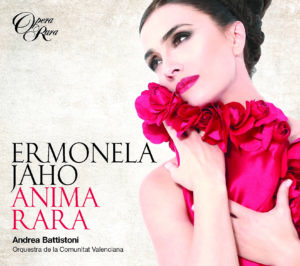
(via Warner Classics)
This is something I feel I’m being educated on with each listening of the album, and Opera Rara’s work as a whole; you really come back to the more known repertoire with new ears.
That’s why I love Opera Rara; they’re very important for the opera world, not because I record with them, but really, we are students, and it’s easy to appreciate something that’s well-known and already-proven before the public, but it requires artistic vision to ask an audition to take a new look at a work of art lost in time, so Opera Rara’s vision is one I am passionate about. I mean, I’m harsh on myself (in terms of performance) here – every time after a recording session I would go home and think, “I could do better here, better there…”
But do you feel that’s a normal part of being an artist? That such perfectionism is a necessary part of creativity?
Especially for this repertoire, yes. What was my epiphany, if I can say that, is the period when I lost my parents, and I had to sing Suor Angelica then. I was numb completely. I’m sharing this episode because of how much art can mean, beyond technique, beyond the voice. Really, at that time, I was numb. I had some days before the premiere, where I was learning and creating with Pappano and everyone on the team, but only when I went onstage, when Principessa comes to Suor Angelica and says, “Your son is dead” – at that moment I felt the pain, the big loss that I had. The magic of the music… to have Pappano, as I said before, to read for this kind of emotion, the teamwork in London, they didn’t know about my loss but maybe they felt the energy, I was like a lost child. Before “Senza Mamma”, in the instrumental introduction, I was worried, like “oh my God, I’m going to stop here I won’t be able to sing it properly – there has to be a the pianissimo at this certain point, I can’t do it” and so on, and everything was discovered, and in that moment , I forget about the technique, I forgot, “oh this note has to be so precise” and… it was my soul singing, in tears, and it wasn’t Suor Angelica, the young mother crying for her son; I felt myself a little girl who had lost her parents. It doesn’t matter what age we lose our parents; it’s loss.
The effect this music had on me, I changed, completely, not because I doubted before, but at that precise moment… something changed in my mind, and I thought, “I have to work not toward the sound, because no one is perfect; some will like you, and some will like someone else, you won’t make everyone happy with your voice. But if you speak through your voice, the colors of the soul that you’re singing, and you are really honest with yourself, absolutely, it will connect with the public” and from that moment, my life changed. As an artist, I do work technically but always in service to the emotion, even risking being not-perfect, because if you don’t risk and go deep, you will never connect with the public – never, ever.

